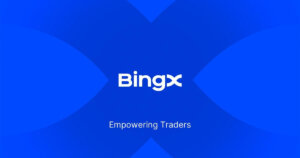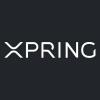 Ripple (XRP) lands on CNBC’s annual top 50 tech disruptors list, here are some reasons why
Ripple (XRP) lands on CNBC’s annual top 50 tech disruptors list, here are some reasons why Ripple (XRP) lands on CNBC’s annual top 50 tech disruptors list, here are some reasons why

Photo by Sacha Styles on Unsplash
While financial markets face turmoil this year, it’s finally looking like a moment for cryptocurrencies — if recognition and partnerships are anything to go by.
Earlier this week, blockchain agnostic protocol Chainlink was awarded the status of a “technology pioneer” by the World Economic Forum, with the latter earmarking the project as making significant technological progress this year alongside others like MakerDAO and Lightning Labs.
Join that cohort is Ripple, the San Fransisco-based payments protocol. The project made the list for CNBC’s top-50 tech disruptors in 2020 on June 17.
“Accelerated pace” of development
At the eight annual 50 disruptors listing, media and markets analysis giant CNBC identified technology firms working in emerging and traditional sectors that are poised to “influence businesses and market competition at an accelerated pace.”
Proud of team @Ripple, always https://t.co/FcNJYppwU3
— Brad Garlinghouse (@bgarlinghouse) June 16, 2020
In particular, CNBC believes such firms will emerge from the ongoing coronavirus pandemic as “dominant” companies that could both change and influence how a post-COVID world operates.
Other awardees were startups and small enterprises from cybersecurity, education, healthcare, logistics, and agriculture — albeit all leveraging technology as their core idealogy.
Interestingly, most of the recognized companies, like Ripple, are already worth north of a billion dollars, joining the so-called “unicorn” club. 36 companies, out of the 50, have both expanded and hired employees throughout the pandemic, with even Ripple’s career page showing open positions at press time.
Factors behind Ripple’s inclusion
Ripple’s inclusion in the list is presumably its work in both emerging and developed markets, specifically that of providing liquidity and micro-loans to SMEs and cutting both remittance times by Ripple’s On-Demand Liquidity (ODL) product.
Last month, Ripple partnered with Ghana’s Waya Money to bring instant settlements to the Western African market. The firm already had a presence in the country, and even organized a charity with popstar Madonna in Malawi in 2018.

Blockchain and cryptocurrencies have witnessed sporadic adoption in Africa, a massive, resource-rich continent suffering from poor financial infrastructure and a robust banking system. Non-blockchain protocols like M-Pesa dominate micro-payments in the continent.
Ripple’s On-Demand Liquidity (ODL) corridors have witnessed major growth and facilitated instant, cross-border fund transfers. The protocol saw triple the usual transaction volumes compared to last quarter, as stated in the Q1 2020 XRP Markets Report.
Earlier this month, Ripple said it would concentrate on micro-payments more than larger treasury transactions:
While ODL-related transaction volume may look a little different this month, our focus on supporting low-value, high-frequency payments is stronger than ever.
SVP of Product @ashgoblue explains how Ripple is evolving with the shifting global tide. https://t.co/9BBEQ0zW0l
— Ripple (@Ripple) June 8, 2020
On the trading side, a May report by Ripple-owned Xpring said cross-exchange XRP transactions see increased inflow/outflow volumes whenever Bitcoin and Ethereum networks are hit by surging transaction fees and congestion.

































































































